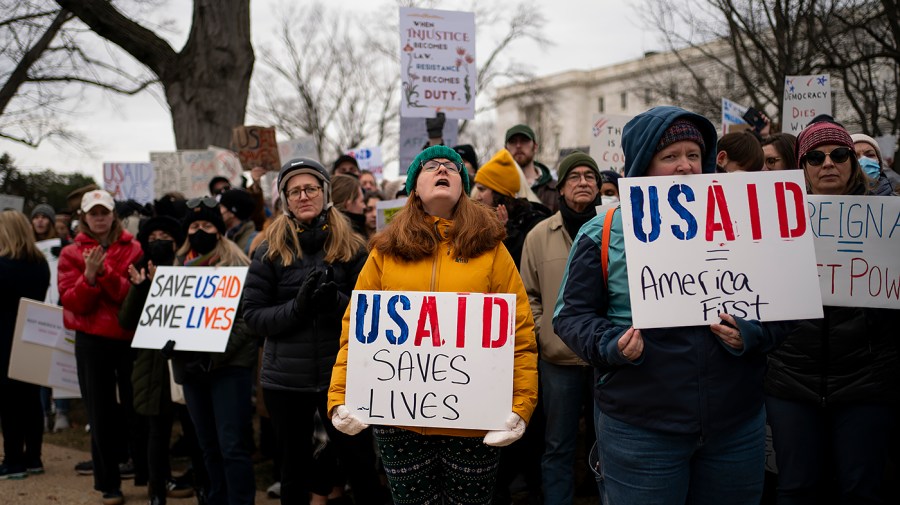Judge to Issue Limited Order Pausing USAID Purge
A federal judge is set to issue a “very limited” temporary restraining order to pause the ongoing reorganization and staff reductions at the U.S. Agency for International Development (USAID). This development comes amid controversy surrounding the Trump administration’s efforts to drastically reduce USAID’s workforce and merge the agency into the State Department.
Key Points:
A federal judge will issue a temporary order pausing aspects of USAID’s reorganization. The order is described as “very limited” in scope. This comes as the Trump administration seeks to cut USAID staff by over 95%. Critics argue the changes jeopardize crucial humanitarian work worldwide.
Background and Context:
The Trump administration has been working to significantly reduce USAID’s size and scope since returning to office in 2025. Recent reports indicate that over 95% of USAID staff have been removed, leaving just 78 people in the Humanitarian Assistance Bureau and 77 in other key divisions. This dramatic downsizing is part of a larger effort to merge USAID into the State Department, accompanied by major funding and workforce cuts. The administration argues these changes will increase efficiency and reduce wasteful spending.
However, the reorganization has faced strong pushback:
A group of House lawmakers have called the USAID takeover “illegal and unconstitutional.” Former agency officials warn the cuts jeopardize vital humanitarian work in over 100 countries. Critics argue the changes undermine America’s global leadership and soft power.
The judge’s forthcoming order, while limited, represents the first legal check on the administration’s USAID plans. However, the full scope and impact remain to be seen once the order is formally issued.
Broader Implications:
The USAID controversy touches on larger debates about America’s role in the world and the use of foreign aid as a tool of soft power and national security. Supporters of a robust USAID argue that humanitarian and development assistance helps stabilize fragile regions, counters extremism, and builds goodwill towards the U.S. Critics counter that foreign aid is often wasteful and fails to serve core U.S. interests.
The legal challenge to USAID’s reorganization also raises questions about executive power and the limits of a president’s ability to reshape federal agencies without congressional approval. As this situation unfolds, it may set important precedents for future administrations.
While the judge’s order is expected to be narrow in scope, it opens the door for further legal challenges that could potentially slow or block aspects of the administration’s plans for USAID. The coming weeks and months will likely see continued conflict between the White House and supporters of traditional U.S. foreign assistance programs.
This is a developing story, and more details are expected once the judge’s order is officially released. The ultimate fate of USAID and U.S. foreign aid programs remains uncertain as legal and political battles continue.









